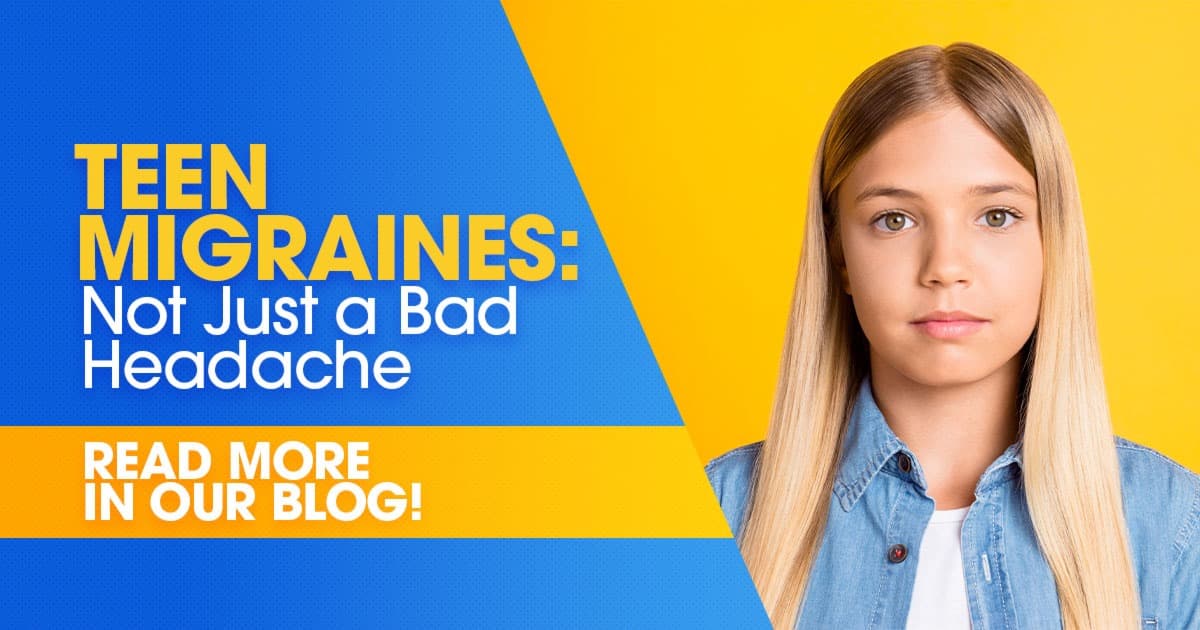Migraines are a daily reality for 39 million Americans. The condition isn’t confined to adults, affecting up to 28% of teens. and is a major cause of disability in young people. Though relatively common, stigma and lack of knowledge surround teen migraines. As a result, underdiagnosis and under-treatment are common. Teen migraines are not the same as a headache. Their symptoms can differ from adult sufferers and are why every parent should know the differences in head pain.
More than a Bad Headache
Migraines are a neurological disease mainly characterized by throbbing or pulsing head pain that is often on one side of the head. Unlike a headache, the pain is more severe and can last 4 to 72 hours, on average. and they are accompanied by other incapacitating neurological symptoms such as:
- Visual disturbances or aura (dark spots, floaters, flashes of light)
- Nausea
- Vomiting
- Dizziness
- Extreme sensitivity to sound, light, touch, and smell
- Tingling or numbness in the extremities or face

For teens, migraines are disabling physically, emotionally, and socially. Teens and parents don’t always realize symptoms can differ, so many teen migraines are downplayed as headaches.
Migraine Symptoms in Teens Include:
- Shorter, less frequent attacks averaging around 2-4 hours
- Pain on both sides of the head versus one is more common
- Sensitivity to light and sound are commonly present before a migraine
Worrying about when the next attack will disrupt their lives can cause anxiety. Kids who have migraines miss twice as much school as their peers and often are unable to participate in after-school and weekend activities.
Dizziness, sleep disturbances, depression, difficulty concentrating, and fatigue add to the challenges teens with migraines face. Young women are more likely to experience migraines, and these may relate to their menstrual cycle.
Expanding the Limited Options for Kids and Teens
The FDA has approved various treatments for migraines. Unfortunately, very few of those are approved for use in kids and teens. Clinical trials are required to approve already marketed treatments for use in young people.

If your teen suffers from migraines, clinical research studies may be an option. Our study volunteers’ experiences can lead to improvement in the treatment, detection, and prevention of medical conditions like migraines. Seattle Clinical Research Center is currently seeking male and female participants to join migraine studies for teens aged 13-17. To learn more, call (206) 522-3330 or visit our website for additional details.
References:
https://www.healthline.com/health/migraine/migraines-in-teens#in-teens



